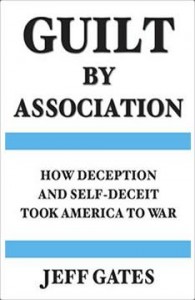On Herder, Human Nature, and the Antifa

Portrait of a loser antifa: “He that has lost his patriotic spirit has lost himself and the whole world about himself.” — Johann Gottfried von Herder, Essay on the Origin of Language, 1772.
In his Essay on the Origin of Language, the German philosopher Johann Gottfried von Herder (1744–1803) undertook a marked departure from earlier ruminations on human nature. Like Plato’s account of the soul, the majority of Enlightenment philosophers tended to see human nature in universal terms, assuming both that rationality was its most significant aspect, and that this rationality was evenly distributed throughout the human population. Man, they argued, was essentially the same creature wherever he was found. Adopting a very different approach, Herder argued that since peoples from different historical periods and cultures varied so much in their concepts, beliefs and abilities, human nature must also be radically different in different cultures. Writing before the discovery of racial and genetic science, Herder argued that broad differences between cultures could be partly explained by two basic observations. The first was that man was indisputably a creature of his herd, society. Or to express is another way, man was, whether he liked it or not, bound to the group from which he was begotten. Secondly, and relatedly, man’s values and sense of himself were shaped by this surrounding society and culture, especially its language.
This notion of the ‘shaping’ of man by his surrounding tribe and its culture led to a further, connected idea of Herder’s — that man was not born ‘complete.’ As Herder expressed it, “a bee was a bee as soon as it built its first cell, but a person was not human until he had achieved completeness. People continued to grow as long as they lived …. We are always in process, unsettled, unsatiated. The essence of our life is never satisfaction, rather always progression, and we have never been human until we have lived to the end.” At the risk of misinterpretation, it is worth stressing that Herder was no existentialist. He did not suggest that we can never be satisfied and therefore that we should each seek to fulfil our own hyper-individual destiny. Rather, Herder argued that this movement towards becoming who we are, our identity, is determined to a great extent by how effectively we fulfil our destiny as part of our group. We can achieve completeness, and that completeness is fulfilled when we become part of our tribe, and play our role in the tribe by passing on its attributes to a new generation. Therefore, our identity, while certainly involving being true to ourselves, has an inescapable national and collectivist dimension to it. This part of our personal identity is handed down to us, and a significant part of who we are is therefore simply not a matter of choice. Read more


 In early 2009, I ran across the book
In early 2009, I ran across the book 


